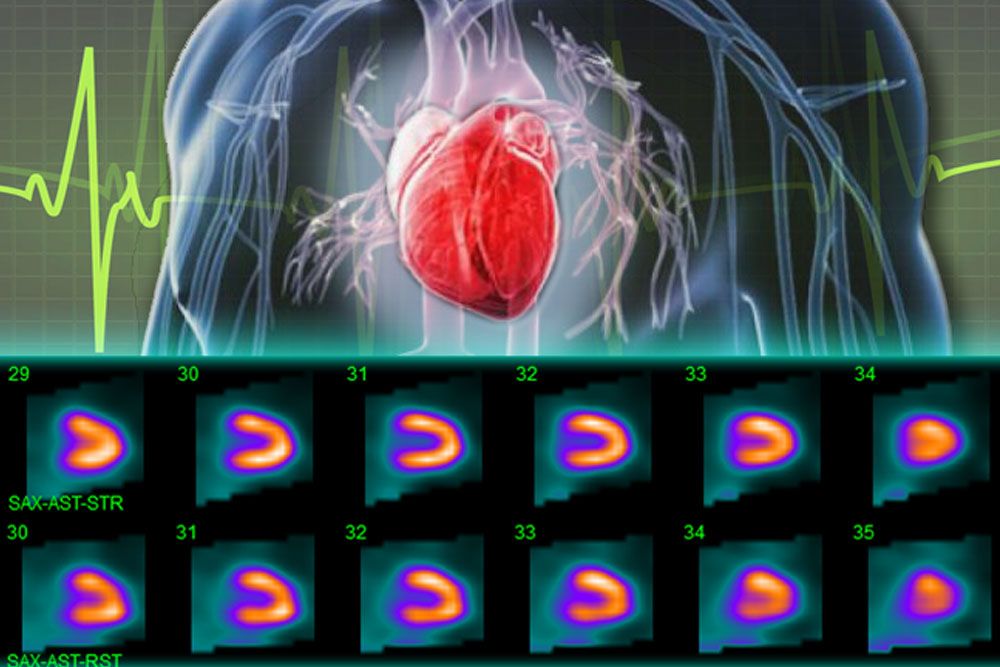Stress testing, including treadmill and nuclear methods, is a critical diagnostic tool for evaluating the heart’s function and detecting potential cardiovascular issues. Florida Cardiology Associates LLC offers comprehensive stress testing services to help identify heart conditions and guide treatment plans. Our Trinity, Florida, clinic has advanced technology to ensure accurate and reliable results.
Symptoms Indicating the Need for Stress Testing
Stress testing may be recommended if you experience symptoms that suggest potential heart problems. Common symptoms include:
- Chest pain or discomfort
- Shortness of breath
- Unexplained fatigue
- Irregular heartbeats or palpitations
- Dizziness or lightheadedness
- Decreased exercise tolerance
The Importance of Stress Testing
Stress testing is essential for diagnosing coronary artery disease (CAD), assessing the severity of heart conditions, and evaluating the effectiveness of treatments. Cardiologists can identify areas with reduced blood flow and pinpoint the cause of symptoms by monitoring the heart’s response to physical exertion or medication-induced stress.
Early detection through stress testing can prevent severe complications such as heart attacks or heart failure. It also provides valuable information for creating personalized treatment plans, ensuring patients receive the most appropriate and effective care for their specific condition.
The Stress Testing Process
Our stress testing process is thorough and designed to provide detailed insights into your heart health. The steps involved include:
- Initial Consultation: Your cardiologist will discuss your medical history, current symptoms, and any risk factors to determine the appropriate type of stress test.
- Preparation: You will receive instructions on preparing for the test, including guidelines on fasting, medication adjustments, and appropriate clothing.
- Treadmill Stress Test: You will walk on a treadmill while your heart rate, blood pressure, and EKG are monitored. The intensity of the exercise gradually increases to evaluate your heart’s response.
- Nuclear Stress Test: A nuclear stress test may be performed if a treadmill test is unsuitable. This involves injecting a small amount of radioactive tracer and imaging to assess blood flow to the heart muscle.
- Analysis: Your cardiologist will analyze the test results to identify any abnormalities and discuss the findings with you.
- Follow-Up: A personalized treatment plan or further testing may be recommended based on the results.
Preventing Heart Disease Through Stress Testing
Preventative care is a cornerstone of heart health. Regular stress testing can identify potential issues before they become serious, allowing for early intervention. Maintaining a healthy lifestyle, including a balanced diet, regular exercise, and avoiding smoking, is crucial for heart disease prevention.
Routine check-ups and stress tests, especially for those with risk factors like high blood pressure, high cholesterol, or a family history of heart disease, can significantly reduce the risk of cardiovascular events. By staying proactive with stress testing, you can take control of your heart health and ensure timely management of any issues.
Positive Outcomes for Heart Patients
With the advancements in stress testing technology, patients have a positive outlook for managing heart conditions. Stress testing provides critical information that helps in the early detection and treatment of heart disease, improving overall outcomes. At Florida Cardiology Associates LLC, we are dedicated to helping our patients achieve optimal heart health through comprehensive testing and personalized care.
By following the guidance of our experienced cardiologists, patients can effectively manage their heart health, improve their quality of life, and reduce the risk of future heart problems. We aim to provide the best possible care and support for all our patients.
Frequently Asked Questions (FAQs)
1. What is the difference between a treadmill and a nuclear stress test?
A treadmill stress test involves physical exercise to evaluate heart function, while a nuclear stress test uses a radioactive tracer and imaging to assess blood flow to the heart.
2. How long does a stress test take?
The entire process, including preparation and recovery, typically takes about 1-2 hours.
3. Is stress testing safe?
Yes, stress testing is generally safe. Your cardiologist will assess your health to ensure it is appropriate for you.
4. Can I eat before a stress test?
You may need to fast for a few hours before the test. Your cardiologist will provide specific instructions based on the type of test.
5. What should I wear for a treadmill stress test?
Wear comfortable clothing and shoes suitable for exercise. Avoid tight or restrictive garments.
Proactive Steps for Heart Health
Scheduling a stress test is a proactive step toward maintaining a healthy heart. At Florida Cardiology Associates LLC, we are committed to providing you with the highest level of care and the latest diagnostic technology. Our team is here to guide you through the process and ensure you receive the best possible treatment.
Don’t wait for symptoms to worsen. Early detection is key to preventing serious heart conditions. Contact us today to book your stress test and take the first step toward a healthier heart.




